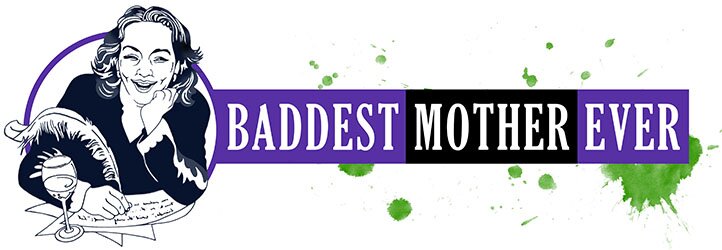Was anyone surprised that Trump turned his first press conference as PEOTUS into a rally, complete with staffers paid to cheer, more bluster than fact, half-baked plans for avoiding a kleptocracy, and shouting hashtags over questions he didn’t like?
Yeah, me neither. He’s a one trick pony–that P.T. Barnum show that he’s relied on to get this far is the only way he knows how to interface with anything even close to public scrutiny. It’s a master class in abnormal psychology, or maybe just staying on brand.
I compare that carnival sideshow with President Barack Hussein Obama’s farewell address the night before and can only shake my head at the disparity. Elegance, eloquence, grace, intellect, wit, generosity, and gratitude–we were lucky to have a leader with all those qualities for eight years.
Today, I read a tweet (because that’s where America is going to happen now, right?) in regards to the Trumpertantrums. The young person lamented, “But who’s going to stand up to him?”
A crystal thought rang into my mind like a small bell of a memory: “We all do.”
I’m borrowing those words from Bill Bryson, one of the most entertaining travel writers in the history of passports. In his book Neither Here Nor There: Travels in Europe, tells a story about visiting the Netherlands when he was a young man. He witnessed the great love the Dutch felt for their Queen Beatrix, and how she enjoyed spending as much time as she could out and about. It was her habit to walk freely around the city, running errands and greeting her fellow citizens. When Bryson, the young American, heard this, he remarked, “But who protects her?” His Dutch friend laughed at the question and replied, “We all do!”
Who protects her? We all do.
President Obama mentioned citizens–the American “We the people”–in his address:
So regardless of the station that we occupy, we all have to try harder. We all have to start with the premise that each of our fellow citizens loves this country just as much as we do; that they value hard work and family just like we do; that their children are just as curious and hopeful and worthy of love as our own.
….
But protecting our way of life, that’s not just the job of our military. Democracy can buckle when we give in to fear. So, just as we, as citizens, must remain vigilant against external aggression, we must guard against a weakening of the values that make us who we are.
….
It falls to each of us to be those those anxious, jealous guardians of our democracy; to embrace the joyous task we’ve been given to continually try to improve this great nation of ours. Because for all our outward differences, we, in fact, all share the same proud title, the most important office in a democracy: Citizen. Citizen.
….
My fellow Americans, it has been the honor of my life to serve you. I won’t stop. In fact, I will be right there with you, as a citizen, for all my remaining days. But for now, whether you are young or whether you’re young at heart, I do have one final ask of you as your President — the same thing I asked when you took a chance on me eight years ago. I’m asking you to believe. Not in my ability to bring about change — but in yours.
Who protects American values? We all do. Who defends the Constitution? We all do. Who demands justice and equal protection under law? We all do. Who has the ability to bring about change? We all do.
Who holds the most important office in a democracy? We all do. We the people.

Our job description is on file in HR.
So on Friday, January 20, at 12:00 noon, I want you to hold your right hand in the air and repeat a little twist on the Oath that is encoded in Article II, Section One, Clause 8 of the United States Constitution:
“I do solemnly swear (or affirm) that I will faithfully execute the Office of Citizen of the United States, and will to the best of my ability, preserve, protect and defend the Constitution of the United States.”
Then let’s get to work.
And right before I hit the Publish button on this post, I saw this cool project from artists Shepard Fairey, Jessica Sabogal, and Ernesto Yerena:
We the People: public art for the inauguration and beyond

We the people are greater than fear, defend dignity, and protect each other. We the indivisible. We the resilient.











